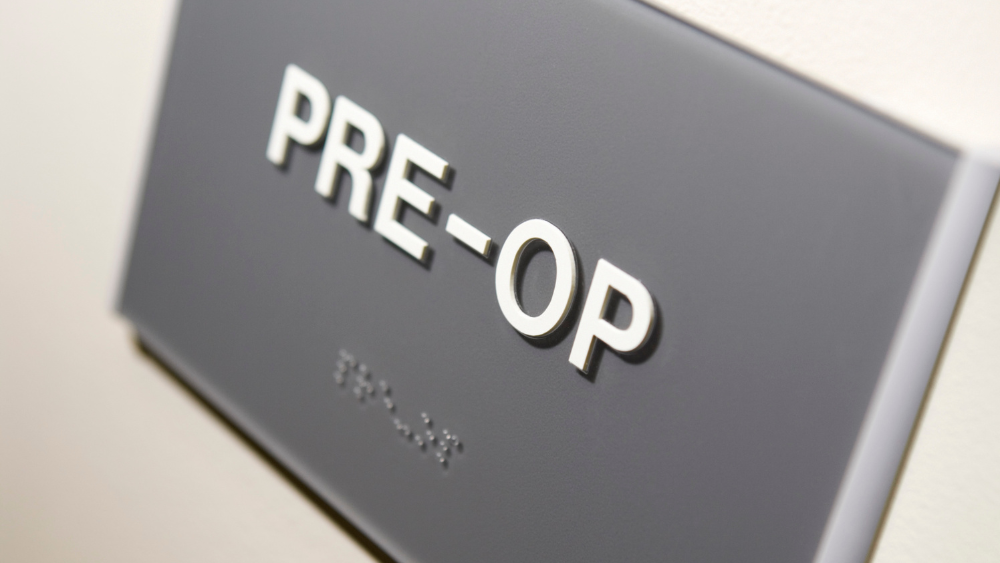August 11, 2023 | By Terry A. Fletcher BS, CPC, CCC, CEMC, CCS, CCS-P, CMC, CMSCS, ACS-CA, SCP-CA, QMGC, QMCRC, QMPM | Terry Fletcher Consulting, Inc. | Healthcare Coding and Reimbursement Consultant, Educator and Auditor | Podcast Host, CodeCast®, NSCHBC Edge Podcast, #TerryTuesday TCG Podcast | NAMAS Educational Speaker and Writer
A question comes up often regarding billing for pre-op visits. Should we? Or shouldn’t we? There is conflicting published guidance on this question from different sources.
First, this depends on what you mean by “pre-operative visits”. Are you talking about a visit performed by the surgeon (or the surgeon’s QHP) or a provider not involved with the surgery? If the decision is made to perform the surgery during this encounter — whether initial or follow-up — then it is appropriate to report an E&M visit. If the surgery occurs on the same day or the following day, append modifier -57 to the E&M as the decision for surgery modifier.
However, if the patient is coming in for a “history and physical” or “pre-op” visit to obtain consents and answer questions the patient may have, this encounter is not billable as it is included in the reimbursement for the surgery. In the RVUs for all surgeries with a 90-day global period, there is pre and post-op work included for this encounter. It would be considered “double-dipping” and being paid twice. Many have the opinion that, technically, if this encounter happens two or more days before the surgery, you could bill it, but ethically you probably should not. I would disagree.
There is no CPT code for a non-billable H&P encounter. Some providers choose to use 99024 to track the frequency and the associated ICD-10-CM codes for these non-billable services. Others use a code they have created, such as pre-op, as a placeholder for these encounters when their EMR allows for it with no dollar figure attached. Other practices don’t track these encounters and may not enter them into the practice management system at all.
Now, let’s look at a “pre-op clearance” or surgical clearance encounter that would not be done by the surgeon or the PA/NP practicing under the surgeon. A surgical pre-op clearance is where a specialist (i.e., Cardiologist or Internal Medicine physician) or PCP clears the patient for surgery. For instance, if a patient with CHF (congestive heart failure) is scheduled for a total right knee replacement under general anesthesia, the surgeon and anesthesiologist may request clearance from the patient’s cardiologist. The cardiologist is not performing the surgery and most likely follows the patient for this condition. Therefore, the cardiologist will not be paid for any services included in the global package. The cardiologist should code the pre-operative clearance encounter with the appropriate E&M code and follow the ICD-10-CM guidelines for the encounter.
These guidelines are in ICD-10-CM General Guidelines: Section IV, Item M “Patients receiving preoperative evaluations only. For patients receiving preoperative evaluations only, sequence first a code from subcategory Z01.81, Encounter for pre-procedural examinations, to describe the pre-op consultations. Assign a code for the condition to describe the reason for the surgery as an additional code. Code also any findings related to the pre-op evaluation.” In the hypothetical case mentioned above, the ICD10-CM codes would be Z01.810, M17.11, I50.9
Another scenario comes up that many coders and physicians attempt to code as a pre-op visit because of the hospital administrative mandate, but you have to determine what the visit is for. Example:
Hospitals require that we do an H&P within 30 days of taking a patient to the OR. If this visit is more than 48 hours prior to surgery, is that a billable visit?
Answer:
No, the H&P, in this case, is not a billable visit. This question comes up often and was addressed by AMA CPT® Assistant® in the following excerpt:
“If the decision for surgery occurs the day of or before the major procedure and includes the preoperative evaluation and management (E/M) services, then this visit is separately reportable. Modifier 57, Decision for Surgery, is appended to the E/M code to indicate this is the decision-making service, not the history and physical (H&P) alone. If the surgeon sees the patient and makes a decision for surgery and then the patient returns for a visit where the intent of the visit is the preoperative H&P, and this service occurs in the interval between the decision-making visit and the day of surgery, regardless of when the visit occurs (1 day, 3 days or 2 weeks) the visit is not separately billable as it is included in the surgical package.
Example: The surgeon sees the patient on March 1 and makes a decision for surgery. Surgery is scheduled for April 1. The patient returns to the office on March 27 for the H&P, consent signing, and to ask and clarify additional questions. The visit on March 27 is not billable, as it is the preoperative H&P visit and is included in the surgical package.”
Source: AMA CPT® Assistant, May 2008/Volume 19, Issue 5, pp. 9, 11
CPT® says once the decision is made to proceed with surgery, the subsequent visits related to the procedure (e.g., an H&P, getting consent form signed, answering questions) are included in the 90-day surgical package. However, in some cases, a patient may be a candidate for a surgical procedure but has a number of medical issues (such as cardiac disease, asthma, or Coumadin [anticoagulant adjustment needed]) that require a medical evaluation to determine if he/she is healthy enough for surgery. After the patient has had a “medical clearance,” he/she returns to you to review the medical doctor’s evaluation, and you, at that point, decide to proceed with surgery. This visit may be billed as an E&M visit, as the decision for surgery is just now being made.
One thing to remember is that utilizing mid-level providers in a surgery practice, such as a PA or NP, to provide pre-ops is not billable as they are considered the same specialty and are not providing “medical clearance” but a pre-op to reiterate the original encounter discussion with the surgeon. There is no “medical necessity” for billing an administrative visit for duplicate information to get home health referrals, prescriptions, or disability forms signed. You might have a cash charge, but billing this to an insurance company is a red flag.
Medicare has weighed in on pre-op visits as well:
- PREOPERATIVE SERVICES A. General.–This manual instruction addresses payment for preoperative services that are not included in the global surgery payment. Sections 4820 and 4821 of the Medicare Carriers Manual (MCM) describe the preoperative care that is included in the global surgery payment.
- Non-global Preoperative Services.–Consist of evaluation and management (E/M) services (preoperative examinations) that are not included in the global surgical package and diagnostic tests performed for the purpose of evaluating a patient’s risk of perioperative complications and optimizing perioperative care. Medicare will pay for all medically necessary preoperative services as described in §15047, subsections C and D.
- Non-global Preoperative Examinations.–E/M services performed that are not included in the global surgical package for the purpose of evaluating a patient’s risk of perioperative complications and to optimize perioperative care. Preoperative examinations may be billed by using an appropriate CPT code (e.g., new patient, established patient, or consultation).
- Preoperative Diagnostic Tests.–Tests performed to determine a patient’s perioperative risk and optimize perioperative care. Preoperative diagnostic tests are payable if they are medically necessary and meet any other applicable requirements.
You’ll notice a theme here. CMS is clear that pre-op, whether an E/M visit or diagnostic test, first has to be done to “evaluate the patient’s RISK” for the procedure and then it has to be “medically necessary.” A pre-op that does not address this is not a billable service. It is a routine informed consent visit.
Your next steps:
- Contact NAMAS to discuss your organization’s coding and documentation practices.
- Read more blog posts to stay updated on the 2023 Revisions to the 2021 E&M Guidelines.
- Subscribe to the NAMAS YouTube channel for more auditing and compliance tips!
- Check out the agenda for the 15th Annual NAMAS Auditing & Compliance Conference and register to attend!
NAMAS is a division of DoctorsManagement, LLC, a premier full-service medical consulting firm since 1956. With a team of experienced auditors and educators boasting a minimum of a CPC and CPMA certification and 10+ years of auditing-specific experience, NAMAS offers a vast range of auditing education, resources, training, and services. As the original creator of the now AAPC-affiliated CPMA credential, NAMAS instructors continue to be the go-to authorities in auditing. From DOJ and RAC auditors to CMS and Medicare Advantage Auditors to physician and hospital-based auditing professionals, our team has educated them all. We are proud to have helped so many grow and excel in the auditing and compliance field.
Looking to start up a medical practice or grow your existing practice? Contact our parent company, DoctorsManagement.









